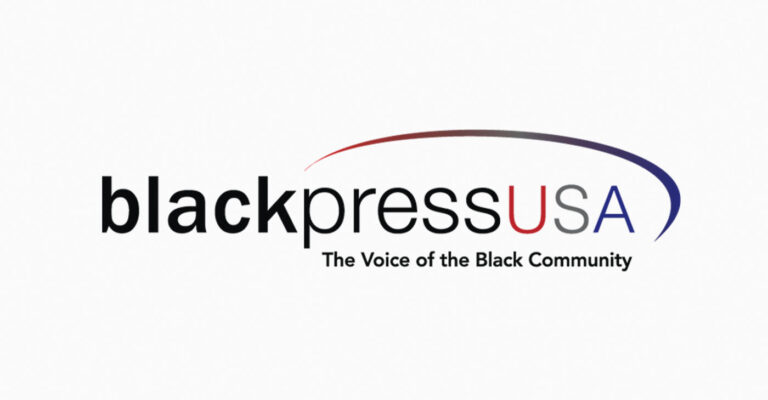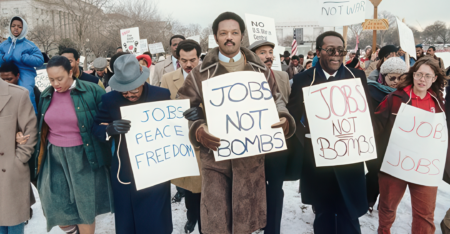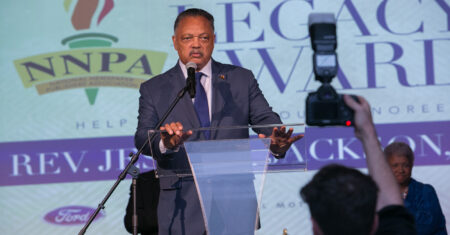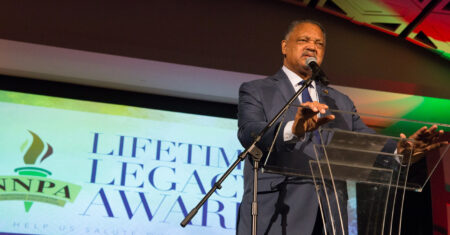By Stacy M. Brown
Black Press USA Senior National Correspondent
Two months ago, famed civil rights attorney Benjamin Crump stood before a ballroom filled with the echoes of history. He did not whisper. He thundered. “If you’ve been blessed,” he said, “you got to pass the blessing on. You just can’t keep it to yourself.” Then he pledged fifty thousand dollars to the Black Press of America. It was not an act of charity. It was an act of faith. A declaration that the oldest voice of Black truth must live to speak again. Crump said he made his gift public because he wanted others to follow. He said he hoped those who had been lifted by the love and loyalty of Black people would remember who gave them their first breath of recognition. He hoped they would remember that the Black Press was not a charity case but a lifeline. Two months later, the silence has been deafening.
Magic Johnson’s people said “no.” David Steward, founder of World Wide Technology, said “no.” Jay-Z’s team didn’t bother to return calls. Janice Bryant Howroyd of the Act-One Group did not respond. Richelieu Dennis of Sundial Brands did not respond. Daymond John, Thomas Moorehead, and Tristan Walker did not respond. Tyler Perry, Robert Smith, and Oprah Winfrey did not respond. Dr. Dre, Spike Lee, and Michael Jordan each have also ignored multiple attempts to have conversations. Even across the ocean, Africa’s wealthiest men—Aliko Dangote, Mike Adenuga, Patrice Motsepe, Strive Masiyiwa, and Abdulsamad Rabiu—have people working for them who won’t acknowledge the Black Press with a simple response. Let the record show what was asked of them. The Black Press did not beg for charity. The Black Press asked to advertise their companies, their products, and their services. We asked to build relationships that honor the communities they came from. Many of them, like Magic, Oprah, and Jordan, have foundations that could have given grants if their hearts were so moved. The Black Press only asked that they see its worth.
Even the Democratic Party, carried to power by Black faith and Black votes, has turned away. The same party that claims to speak for equality now walks quietly in step with Trump’s anti-diversity crusade. They have shut the Black Press out of advertising dollars while funneling millions into white-owned mainstream media. It is hypocrisy dressed in progress to preach inclusion while starving the very storytellers who gave them the language of struggle.
This abandonment comes at a time when Trump has declared war on the lives and livelihoods of Black people. His administration has terminated more than three hundred thousand Black women from federal jobs that once sustained families. His policies against diversity have closed doors for hundreds of thousands of other Black men and women. Companies, emboldened by his rhetoric, continue to lay off and fire workers, many of them Black. And in the middle of this storm stands the Black Press — the last institution that still employs and uplifts hundreds of Black men and women who have families to support. Each of the more than two hundred newspapers and media companies in the Black Press represents not only truth on paper, but food on a table, tuition paid, rent covered, and the dignity of work preserved. The Black Press has been here before. It has stood when Frederick Douglass told a nation built on lies that truth would not die. It stood when Ida B. Wells printed the names of the lynched. It stood when Mamie Till demanded that the world look at her child. It stood when Dr. King wrote from Birmingham Jail. It stood when Malcolm X spoke the raw truth America refused to face. It stood when the white press would not. And it still stands today, two centuries strong, built by two brave souls – John B. Russwurm and Samuel Cornish during slavery – and, now, carried mostly on the backs of Black women. The Chicago Defender. The New Pittsburgh Courier. EBONY. The Amsterdam News. The Philadelphia Tribune. The Afro American. The St. Louis American. The Los Angeles Sentinel. The Michigan Chronicle. The Washington Informer. These are not relics of a fading past. They are the pulse of a people who refuse to vanish.
Many of these newspapers live in the same cities that raised the icons now silent. Chicago, where Jordan and Oprah became legends. Los Angeles, where Magic Johnson built his empire. Brooklyn, where Spike Lee found his voice. Philadelphia and New York, where Jay-Z and Will Smith found theirs. The irony is sharp. These newspapers gave many of them their first headlines, their first interviews, their first measure of respect. Remember EBONY? JET? How about Right On! Yet now, as the Black Press struggles for air, those it once lifted act as if they never knew its name. So it is that in this moment of trial, a civil rights attorney and a white businessman stand nearly alone. Mark Cuban, through his Cost-Plus Drugs company, reached into his own pocket and gave one hundred thousand dollars to the Black Press without hesitation. He did not wait to be convinced. He saw the need and answered it. Two hundred years of truth are hanging by a thread. The presses still turn. The ink still flows. But for how long? If the Black Press falls, so does the record of our struggle, our triumph, and our faith.
“We are going to save ourselves,” Crump declared. “We are all we need.” His words were not sentimental. They were a warning. Because a people without storytellers are a people without memory.







